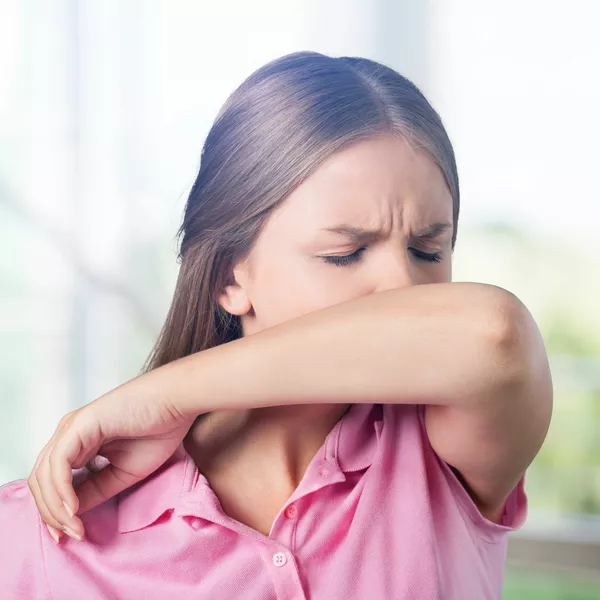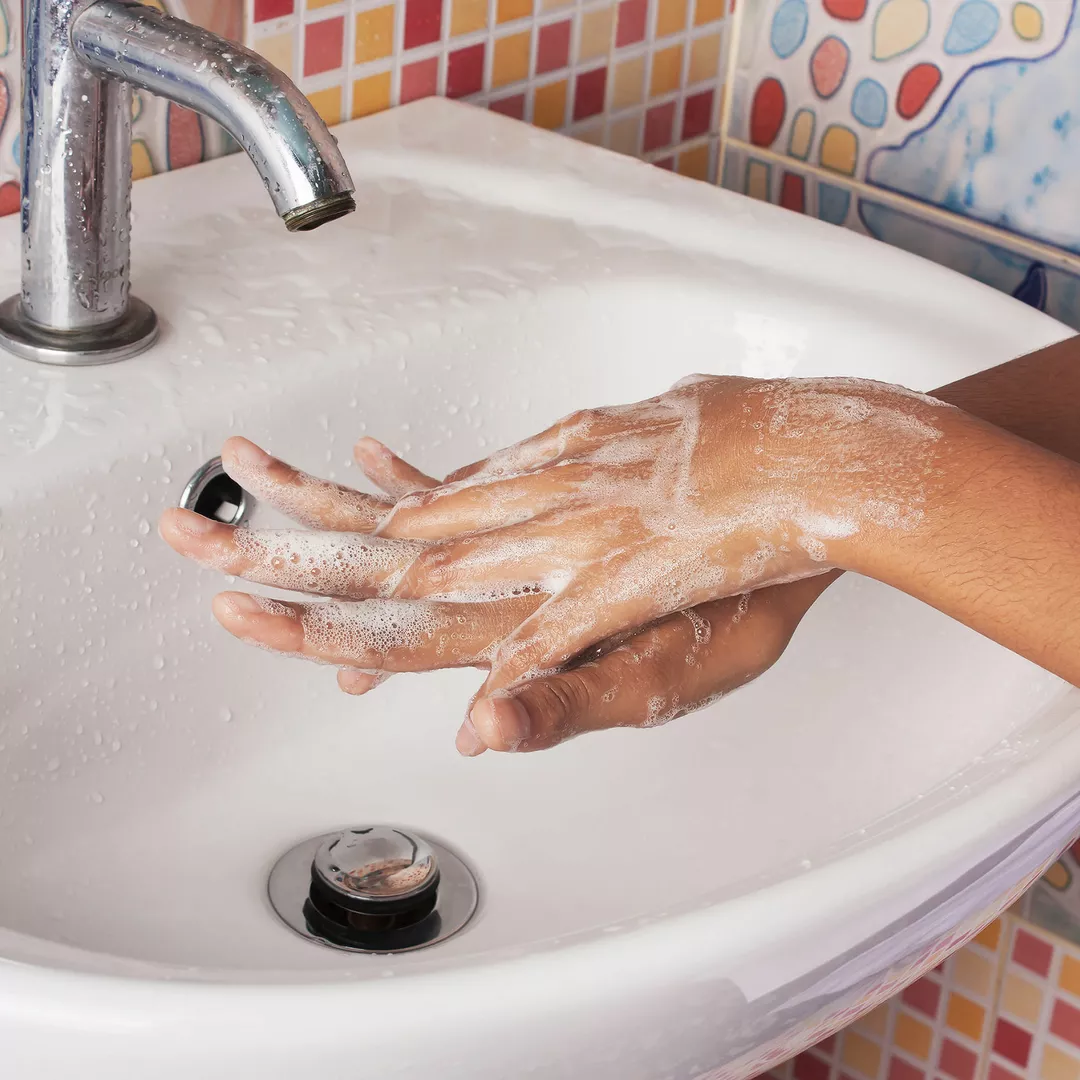
Professor Ben Freedman, cardiologist and research group leader at HRI, addresses some common myths and gives the facts about the coronavirus (COVID-19).
1. Having COVID-19 could trigger a heart attack and cause permanent damage to the heart.
COVID-19 can affect the heart in multiple ways. It can cause direct cardiac injury by damaging the heart muscle, and it can also worsen pre-existing heart conditions such as heart failure, due to the stress it can inflict on the body. Cardiac arrhythmias, when the heart beats in an irregular or unstable rhythm, are another manifestation of COVID-19 infection.
It is uncertain whether COVID-19 has been responsible for heart attacks, but there are previous studies showing that patients who suffer respiratory infections (such as influenza or other strains of coronavirus) are at higher risk of a heart attack occurring afterwards. The reasons behind this are not yet clear, but the inflammation caused by the virus may cause coronary plaques to rupture and block with clots.
2. Severe COVID-19 directly damages the heart.
The COVID-19 virus can either directly infect the heart, or else indirectly damage the heart due to the body’s own severe immune reaction against the virus, called a cytokine storm. This causes damage to heart muscle cells, and often leads to death of the patient.
3. People with diabetes are at greater risk of catching COVID-19.
People with diabetes do have a greater risk of contracting COVID-19 than those without, and a much higher risk of serious complications and death.
There are two possible reasons for this. The first is that hyperglycaemia (high blood sugar levels) in people living with diabetes may cause a dysfunction of the immune system that makes them more vulnerable to infections.
The second is that some people with diabetes may have slower healing because of problems with their circulatory system that can slow the blood flow to damaged areas of the body. Someone with diabetes can also experience inflammation related to uncontrolled high blood sugar. If the body is already fighting this inflammation, then its immune response to something like the coronavirus could be slowed. But research is urgently needed to work out why this happens so we might be able to prevent complications and reduce infections.
4. Common blood pressure and diabetes medications could make COVID-19 more severe.
There is no evidence that commonly prescribed medications for pre-existing conditions like high blood pressure and diabetes are harmful to people with COVID-19.
People with pre-existing conditions do appear more likely to develop serious complications from COVID-19, but that is likely to do with the disease itself and the underlying risk factors, not the medications used to treat it.
I cannot stress how important it is to keep taking your medication unless advised otherwise by your own doctor. Suddenly stopping your medication could actually be quite harmful to your health.
5. Drugs like antibiotics and anti-malarial treatments could cure or treat COVID-19.
COVID-19 is caused by a virus, not bacteria. Antibiotics only work against bacteria, so they will not effectively prevent or treat COVID-19. However, if you are diagnosed with COVID-19, you may be prescribed antibiotics because bacterial co-infection is possible.
In the US, the anti-malarial drugs chloroquine and hydroxychloroquine have been approved for emergency coronavirus treatment. While there have been a few small anecdotal studies showing that these drugs could relieve the respiratory symptoms of COVID-19 or improve the recovery of patients suffering from a mild form of the disease, there is currently no definitive evidence proving that these drugs are effective against COVID-19. Several clinical trials are underway to test their effectiveness, including a large one in Australia.
6. The coronavirus that causes COVID-19 can be transmitted through mosquito bites and pets.
While some coronaviruses that infect animals have become able to infect people, this is rare. There is no evidence to suggest that a person can contract COVID-19 through mosquito bites or pets. However, since animals can spread other diseases, it’s best to practice good hygiene and wash your hands after being around pets or other animals.
Mosquitoes can transmit disease only by sucking blood and transferring that blood into another person. Coronavirus doesn’t stay in the blood long enough to be transmitted.
7. Home remedies for boosting the immune system will protect against COVID-19.
Taking garlic, vitamin C and zinc may help the immune system and the symptoms of a common cold, but there is no evidence to suggest these or other home remedies can protect people from COVID-19.
Only a vaccine will protect against COVID-19, and research is underway by several groups around the world, including two in Australia, to develop one. But until one is available, the best way to protect yourself from COVID-19 is to practice social distancing by staying at least 1.5m away from others and avoiding crowded places, wash your hands with soap and water for at least 20 seconds after you have been outside or in contact with other people (or use an alcohol-based hand sanitiser), and avoid touching your face and shaking hands with others.
8. The flu vaccine will protect against COVID-19.
The coronavirus that causes COVID-19 is different from the influenza viruses that cause flu, so the flu vaccine will not protect against it.
However, having the flu could put you at greater risk of catching another virus like the coronavirus, so I would highly recommend getting the flu vaccine, in consultation with your own doctor.
We know that people with compromised immune systems and existing chronic conditions are at risk of more severe complications if they contract COVID-19. While there is no data at the moment on people having both flu and COVID-19, having two infections could easily overwhelm the body and lead to a really poor health outcome, so we want to avoid that.
9. You can catch the virus through urine and faeces.
There has been research that suggests the coronavirus can be present in faeces. However, viruses detected in this way are not infectious to others, as travelling through the digestive system destroys them. It is uncertain how important this might be in catching COVID-19.
Having said that, it is a good hygiene practice to put the toilet lid down when you flush, to prevent droplets from the toilet spraying into the air and onto other surfaces.
10. The virus attaches to hair and clothes, and can remain in the air for hours, but it can be deactivated with sunlight.
Coronavirus can be spread in the tiny droplets released from the nose and mouth when an infected person coughs. Research has shown that the virus could survive in these droplets for at least three hours after being coughed into the air.
These droplets can land on surfaces including hair and clothes. A study has found that coronavirus can survive on surfaces for the below durations, but the virus rapidly degrades over this time and becomes inactive.
- Hard, shiny surfaces like plastic, glass and steel: up to 72 hours
- Cardboard and other porous surfaces like paper and clothing: up to 24 hours
If you are concerned about the virus being on your clothes, wash your clothes on a hot setting and put them in a hot dryer. Coronaviruses begin degrading quickly in temperatures above 56°C.
While coronaviruses are killed by UV light, there is currently no data on how long it would take to deactivate COVID-19 with sunlight, so putting items in the sun is not a reliable way to disinfect them. It’s best to wipe down surfaces with a household disinfectant.
11. Coronavirus remains in the throat for 2–3 days, so drinking hot liquids will wash the virus into your stomach before it reaches your lungs.
Once the coronavirus has entered the mouth from droplets in the air or from touching your face, it cannot be prevented from reaching the lungs.
A symptom of COVID-19 can be a sore throat, so gargling with warm, salty water may soothe this soreness, and drinking hot liquids will keep you hydrated. However, in no way will this kill the coronavirus or “flush it out” as some claims on the internet suggest.
People with COVID-19 can actually have their first symptom as gastro-intestinal discomfort and diarrhoea before getting cough, fever and breathing difficulties, and people with these symptoms seem to do worse.
If you have any concerns at all about your health, please contact your doctor or other healthcare professional.
More articles about COVID-19


